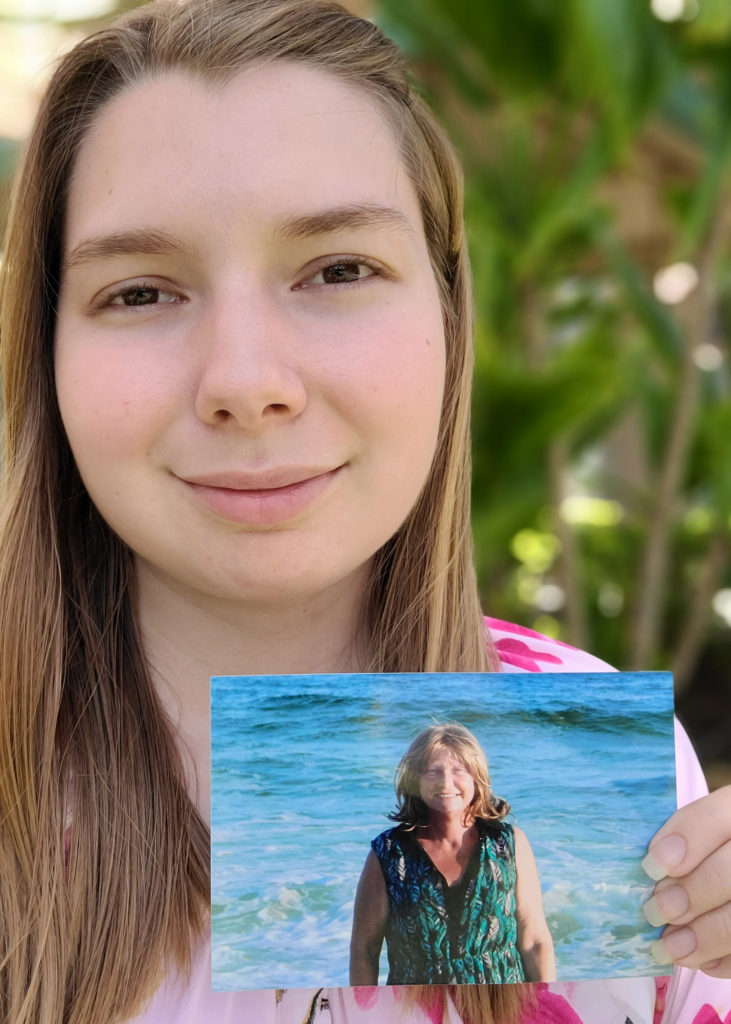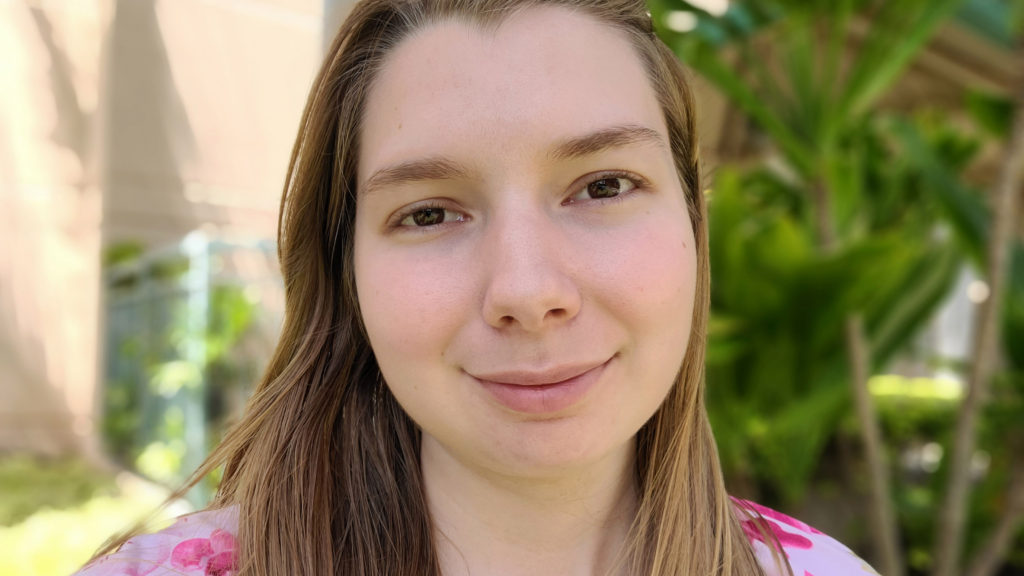The nursing home room was silent, interrupted only by the oxygen machine’s swift puff noise like clockwork as it coursed through a long clear tube and into my mother’s body.
Every breath was laborious. The crackle in her outgoing breath was followed by a wince of pain. Hospice—or “the H-word” as my mother called it, refusing to say the name associated with dying—kept her comfortable, but her body was failing her. She used her whole body to breathe that morning. Her belly tensed and pushed each breath up her chest muscles to her throat.
My sister and I sat beside her, holding her hand in front of a large window. It was a grey, overcast and bitter cold day, with patches of snow remaining on the frozen ground outside.
At 9:29 a.m. on January 15, 2020 they called time of death, but at 9:25 a.m. she took her last labored breath and went to be with God. Catherine Schuller was 55 years old, a mother of two girls, a friend and caretaker of everyone she met. And now she was gone.
The oxygen machine was turned off. Its ambient roar delivering the breath of life to her failing body was gone. The fight was over and the hand I held grew cold.
“Megan Fernandes,” the doctor said, holding a clipboard with my information on it, and snapping me out of the flashback tuning out my surroundings. I was in the “COVID tent” outside Tripler Hospital, and had been for six hours. The week before, I had shown viral symptoms.
A doctor examined me, said I had pneumonia, and sent me home.
The day my mother died was the last time I wore a mask before then, and now every time I put one on, I relive that day.

She was a two-time cancer survivor. First of lung cancer, and then metastatic lung cancer—cancer cells that started in the lungs and found residence in her brain. The tumors in her brain were resected, but they regrew and the direct radiation therapy left blistering burns all over her body. The treatments failed and the tumors continued to grow and wreak havoc on her whole body up to the end.
When mid January came, she was actively dying and there was nothing we could do. Nurses told us the masks weren’t to protect her anymore, it was to protect us from the shingles infection that her body couldn’t fight off.
The grief surrounding her death followed me like a constant midday shadow, always at the heels of my feet. After she passed, I flew back to Hawaii and desperately tried to get back to my “old” life—my distraction from the grief.
I missed the little things like talking to her on my commutes to and from Downtown Honolulu and once at lunchtime—a routine that now felt eerily lonely and reopened my wound day after day.
Then it felt as if all at once, the coronavirus hit and while the world kept spinning physically, everything else stopped.
The sister nursing home of the one my Mom was at in Joliet, Illinois had 23 deaths from COVID-19. Neither next of kin nor visitors were allowed, not even to say a final goodbye. I thought to myself, my God what if she didn’t pass when she did? She prayed every night for her girls to be by her side. Her biggest fear wasn’t death itself; it was dying alone. I flew, and my sister drove, from different sides of the country to be with her. I learned that these what-ifs are a dangerous road to go down. As what happened in Joliet started across the country, I realized that in a way, by taking her when He did, God granted my Mom’s last wish.
When my birthday rolled around during quarantine in March, her death hit me hard. No missed calls or voicemails of her singing me happy birthday. No double birthday cards because she couldn’t decide between two she liked. No Jewel-Osco birthday cake. No Mom.
I felt her absence more than any day before. The thing they don’t tell you about grief is that some days you remember the impact of their presence in your life, because you feel the gravity of their absence.
Behind my mask is what makes me, me. The punny, happy-go-lucky writer who loves painting and other creative arts. But there’s also grief and an Eeyore sadness that may fade slightly over time, but will never fully go away.
Not everyone is grieving the death of a loved one or friend during this time. But people are grieving the loss of a job, the security of providing for their families, the loss of a normal routine, the comfort from a loved one’s warm embrace.
“Que sera, sera,” she used to say. “Whatever will be, will be.”
Maybe in this collective loss, we can cope with the absence, and fully enjoy the presence of these blessings when they return. While I tirelessly continue to cope with the loss of my mother, I know I love a little more deeply and push myself to exemplify the very best characteristics I saw in her.





Megan, I feel like you are speaking directly to me. My mom went to the hospital for cancer surgery in March and died in the hospital April 6th by herself. Worst pain ever.
That was beautifully written honey!! Love you!
Beautiful tribute to your mother, Megan. I am truly sorry for your loss and also glad for her and for you and your sister that your mom’s final wish was granted. She sounds like a strong and joyful woman, and you do, too. Be well, young lady with a lovely heart and face, and keep writing! Aloha from an old tutu.
Beautifully spoken and heartfelt
What a touching essay. Having parents leave us is never easy. God Bless them all in heaven.